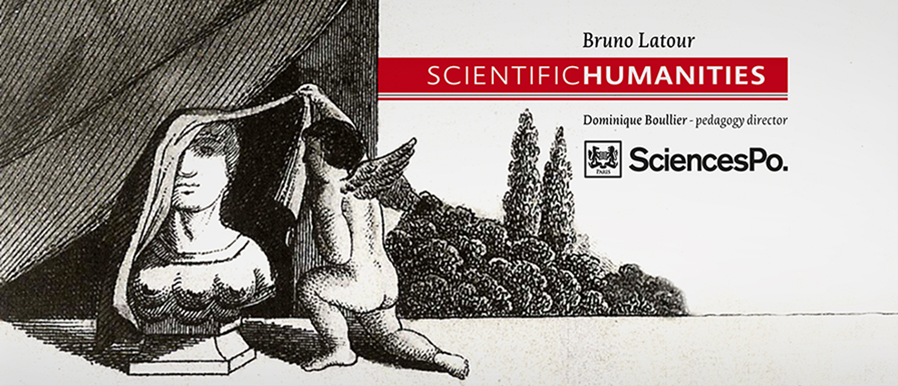
Presentation:
« Scientific humanities » means the extension of interpretative skills to the discoveries made by science and to technical innovations. The course will equip future citizens with the means to be at ease with many issues that straddle the distinctions between science, morality, politics and society.
FUN-MOOC : Scientific Humanities par fr-universite-numerique
The course provides concepts and methods to:
-
Learn the basics of the field called “science and technology studies”, a vast corpus of literature developed over the last forty years to give a realistic description of knowledge production.
-
Handle the flood of different opinions about contentious issues and order the various positions by using the tools now available through digital media
-
Comment on those different pieces of news in a more articulated way through a specifically designed blog.
Requirements and organization:
-
The course is available in english and the assignments must done in english.
-
The course is designed for undergraduates but since the topic of scientific humanities is not widely known, it will be of interest for graduates and for the general public as well. It does not require a degree in science and technology.
-
The course is organized in 8 sequences It displays multimedia contents (images, video, original documents)
-
The MOOC requires 3 hours of work per week (including readings and blogs assignments)
Dear students, please notice that for this first issue of the course, your assignments will not be evaluated. However, two sequences (weeks) will be dedicated to a feedback made by Professor Bruno Latour about the contributions you publish on your blogs: he will pick up examples from the exploration you made and will mention the authors. And since the forum will be monitored, feel free to comment, ask questions and contribute to improve your MOOC experience.
Presentation of Professor Bruno Latour:
Bruno Latour was trained as a philosopher and an anthropologist. From 1982 to 2006, he has been professor at the CSI (Ecole des mines) in Paris. He is now professor at Sciences Po where he created the medialab in 2009. He became famous for his social studies of science and technology. He developed with others a widely known theory called “Actor Network Theory”.
Produced by Bruno Latour
In collaboration with: Dominique Boullier, Donato Ricci, Maxime Crépel, Paul Girard, Guillaume Plique, Michael Flower, Tommaso Venturini, Jean Didier Mottelier, Michele Graphieti, Griffin Mc Innes, Gerrit Hatcher, Barbara Bender, Melissa Dubbin, Rhino Ariefiansyah




